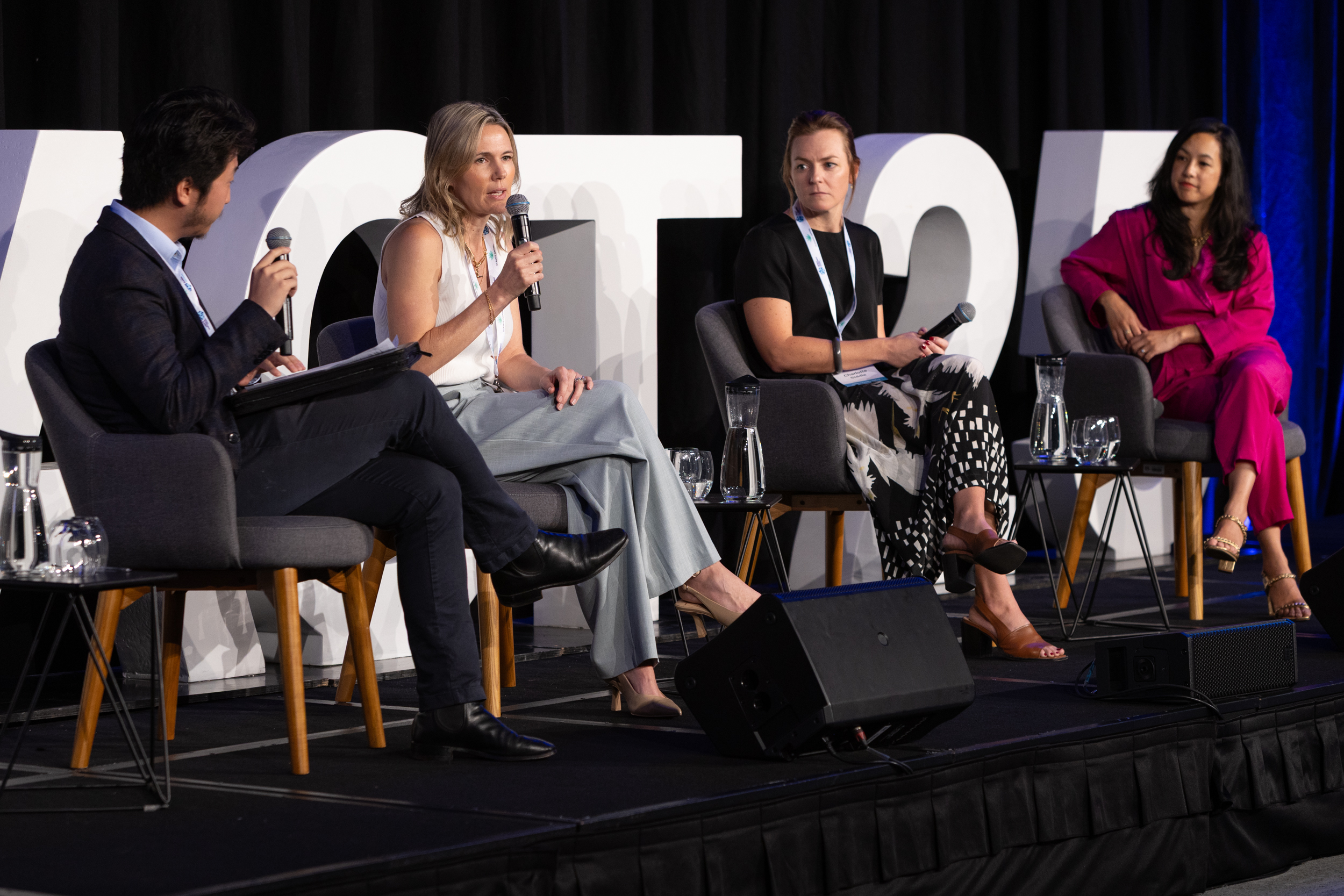Climate change, seismic economic shifts, AI, geopolitics and war are all contributing to a looming crisis threatening global stability in ways not seen since the 1930s. We are living through a period author Viktor Shvets refers to as ‘the twilight before the storm’, after which a new world will emerge.
As we approach this tipping point we find ourselves at a junction where those “for whom the system no longer works are ready to burn the house down and rebuild it.”
What this new world might look like and the sorts of impactful, forward-thinking ways we could rebuild were the subject of an engaging discussion at this year’s Impact Investment Summit Asia Pacific in Sydney led by Viktor, the summit’s keynote speaker, author of The Twilight Before the Storm and Macquarie’s global head of strategy.
The role we play was a consistent theme of the summit and particularly relevant when you consider the conscious directional change of family offices and foundations today, a message that emerged repeatedly during the panel ‘Family Offices and Foundations: The Influence of the Next Generation’.
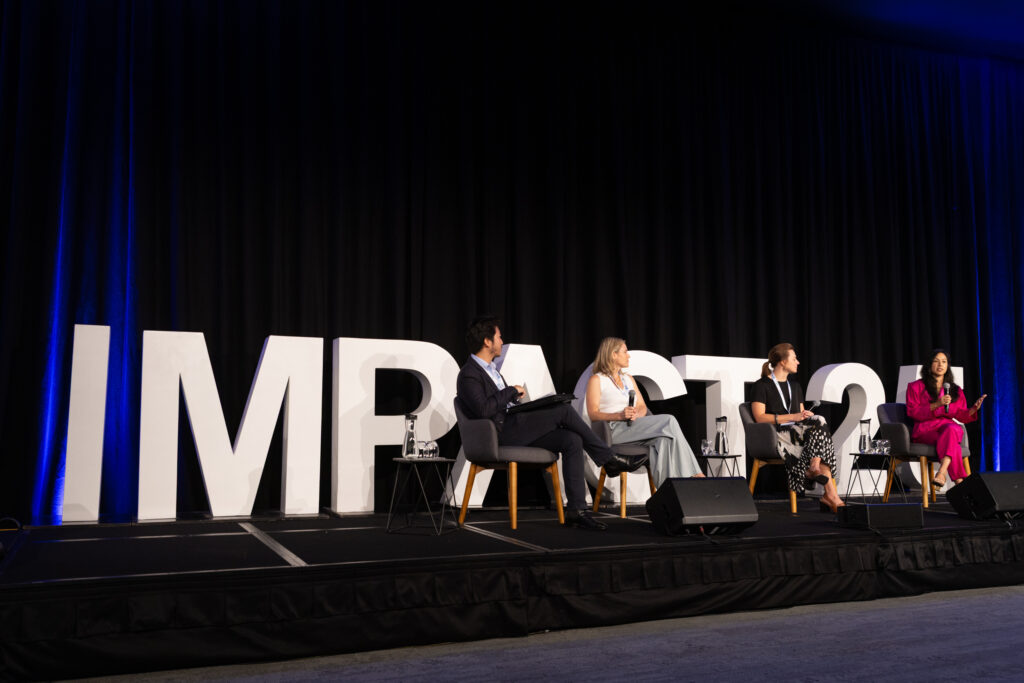
Boundless Earth’s Caroline Vu (far right) with (from left) Tyson Fenay, Ingrid Albert and Charlotte Siddle.
Held annually in Sydney, this year’s two-day summit was themed ‘Scaling Investment for Impact’. Alberts was invited to speak on two panels: the Next Generation panel included executive director and head of The Tony Foundation Ingrid Albert; while executive director, head of impact and Music Education: Right from the Start lead Emily Albert joined the panel ‘A Creative Venture: Opportunities for Impact Investing in the Arts.’
“There are more and more family offices today,” says Tyson Fenay, a Philanthropy Australia board member who was moderating the Next Gen panel. “And unlike many other financial institutions, family offices and foundations are a lot more malleable in terms of what they want to do in reflecting not only the values of their families but the values of their communities.”
A member of Alberts fifth generation, Ingrid highlighted the business’s significant shift towards impact following the sale of the bulk of the music business in 2016.
“We came together as a generation and made the difficult decision to sell. At that point we [refocussed on] impact. It’s fundamentally shifted how we think about Alberts and what we do today,” she says.
Alberts has created an impact framework that covers four key areas: sustainable environment, equality, healthy minds and a vibrant culture. Today, the company seeks to advocate for those four areas in everything it does. This includes Alberts Impact Ventures (AIV), an operating business that reflects a new direction for Alberts capital allocation, driven by the next generation and set up specifically to invest in pioneering founders exploring innovative new ways to solve today’s most urgent problems in areas such as the environment and mental health.
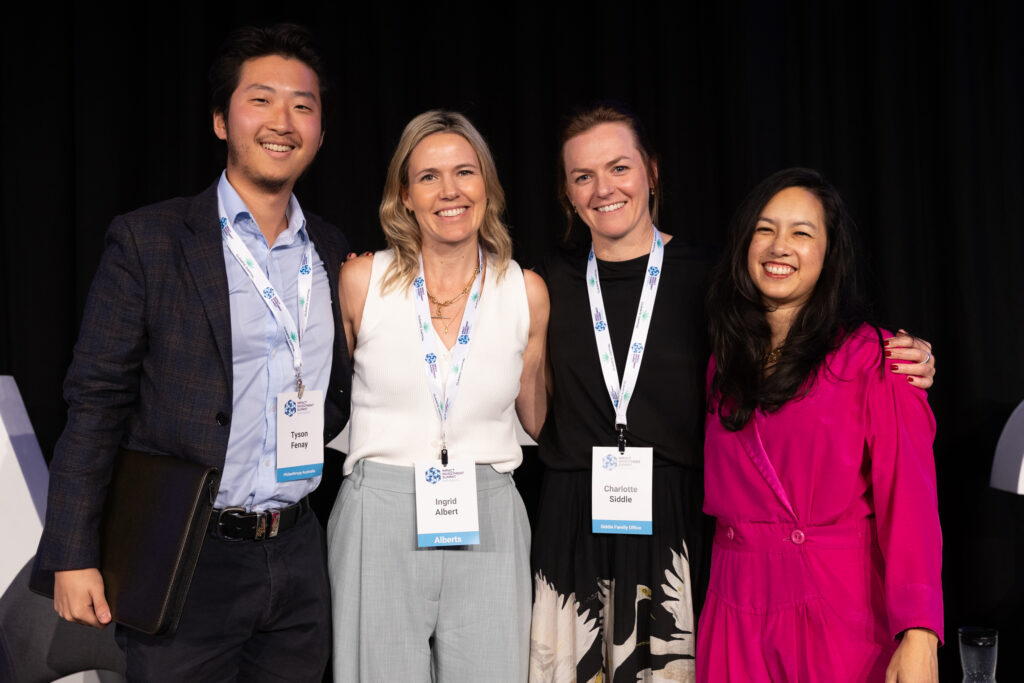
Tyson Fenay, Ingrid Albert, Charlotte Siddle and Caroline Vu.
“We’re looking for high returns, high growth and deep impact. It is not philanthropic; it is definitely a financial decision from the business,” Ingrid says.
Various different avenues have been taken to create impact at Alberts: a total impact portfolio approach in which every decision made about the investment portfolio behind Alberts’ philanthropic arm, The Tony Foundation, is considered in terms of its impact, yet still seeking a market rate risk-adjusted return.
Generational strategies to achieve impact extend beyond capital deployment too, such as a move away from the family and business’s historically private nature to being more public about issues it feels passionate about, believing sharing knowledge, collaborating across sectors and leading by example will encourage others to follow.
“We try to use our voice to advocate for things we feel strong about, such as Diversity Equity and Inclusion. You’ve seen a lot of roll-back in those areas in organisations, but for us it’s an opportunity to look at organisations and see the authentic ones and who you’d want to partner with,” Ingrid says.
Alberts is also more recently keen to collaborate, as evidenced by the collaborative approach behind the Alberts-founded advocacy initiative Music Education: Right from the Start. “We don’t have all the knowledge and we want to bring in people who do, who have diverse perspectives and are willing to [advocate] to drive change across industries.”
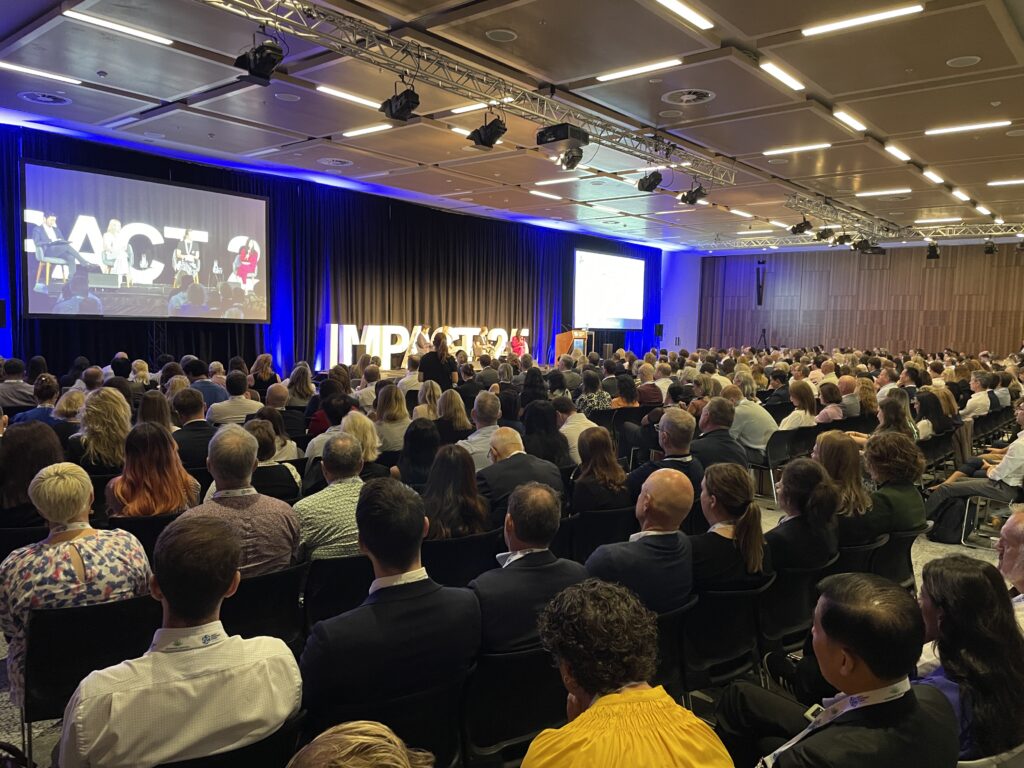
Over 600 people joined Day 1’s morning plenary session at the International Convention Centre, Sydney.
Advocacy was one of the driving forces behind Boundless Earth, a not-for-profit climate organisation set up by Atlassian co-founder Mike Cannon-Brookes. Focussed on climate advocacy with a mission to get Australia on track to become a renewable energy superpower by 2030, Boundless’s chief of staff is Caroline Vu.
Boundless is another example of the next generation taking matters into its own hands when it comes to climate solutions, evolving as it did from Cannon-Brookes’s 2021 pledge to climate solutions.
“If you think about climate and how big the problem is it’s very easy to get analysis paralysis,” says Caroline. “A value that’s core to Boundless is optimism, the sense that we have solutions at our disposal, we just need to move capital fast enough to deploy it [effectively].”
Values have been a big driver for the Siddle Family Office, run by second generation family member and CEO Charlotte Siddle, who looks after the company’s investments and Foundation. In a bid to overcome generational differences, she and her father Michael Siddle (a founding director of Ramsay Healthcare) chose to focus on what they agreed on, including backing good people and giving them the space and trust to do their jobs. It is a value that has always been a driving force for Alberts, too, now and in generations past.
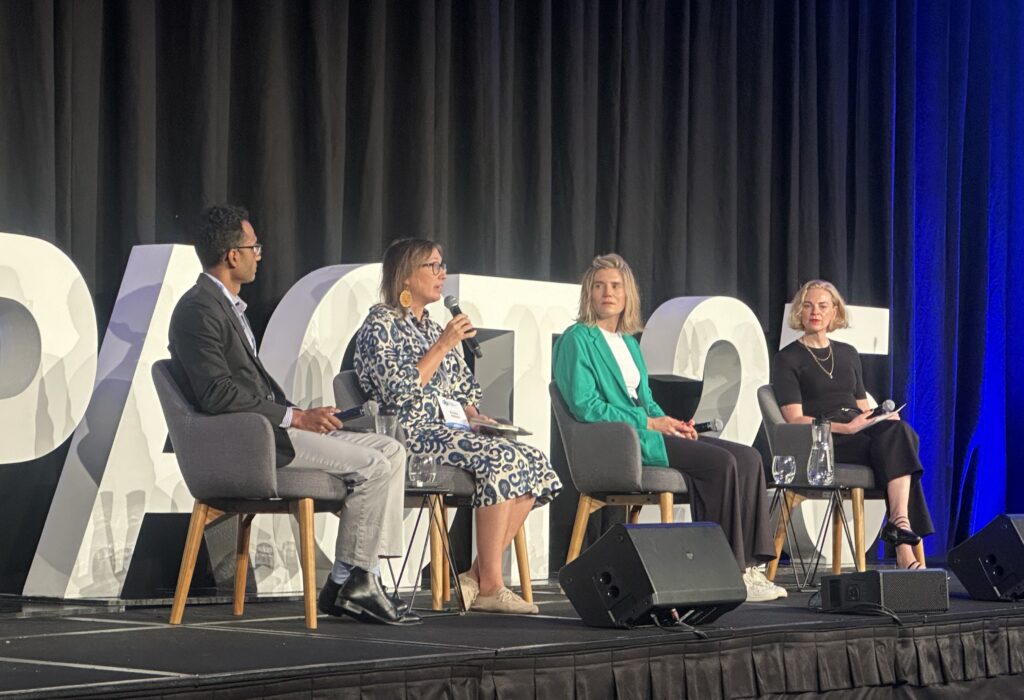
Abhilash Mudaliar, Emily Albert, Hannah Ebling and Jayne Lovelock on the panel, ‘A Creative Venture: Opportunities for Impact Investing in the Arts.’
In fact, a number of the values that defined Alberts for generations continue to play a large role, but with structure and intention. Chief among them is Alberts’ pioneering spirit. The company has always backed pioneers, whether that was investing in the early music publishing business, the emerging mediums of radio and television, or helping create and build Australia’s pop and rock music industry.
One area that the current generation has been focussing on is formally investing in creativity, recognising the economic value it has brought the business over time and its ongoing value to society. The benefits of and opportunities for impact investing in the arts was the theme for the second panel, facilitated by Creative Australia’s Jayne Lovelock.
Founder of social impact advisory firm Grey Area Partners, Abhilash Mudaliar, noted that from an investment point of view the creative sector provides diverse opportunities, spanning museums, galleries and the performing arts; while it contributes 5 per cent of Australia’s GDP and 7 per cent employment.
Abhilash referred to a growing body of research proving the positive social and cultural value the industry creates, a still under-recognised impact. “There’s a strong link between arts and culture and literacy outcomes, building skills such as problem solving, a strong link to social cohesion because it fosters understanding of different cultures and allows marginalised groups to have a voice and share their stories,” he says.
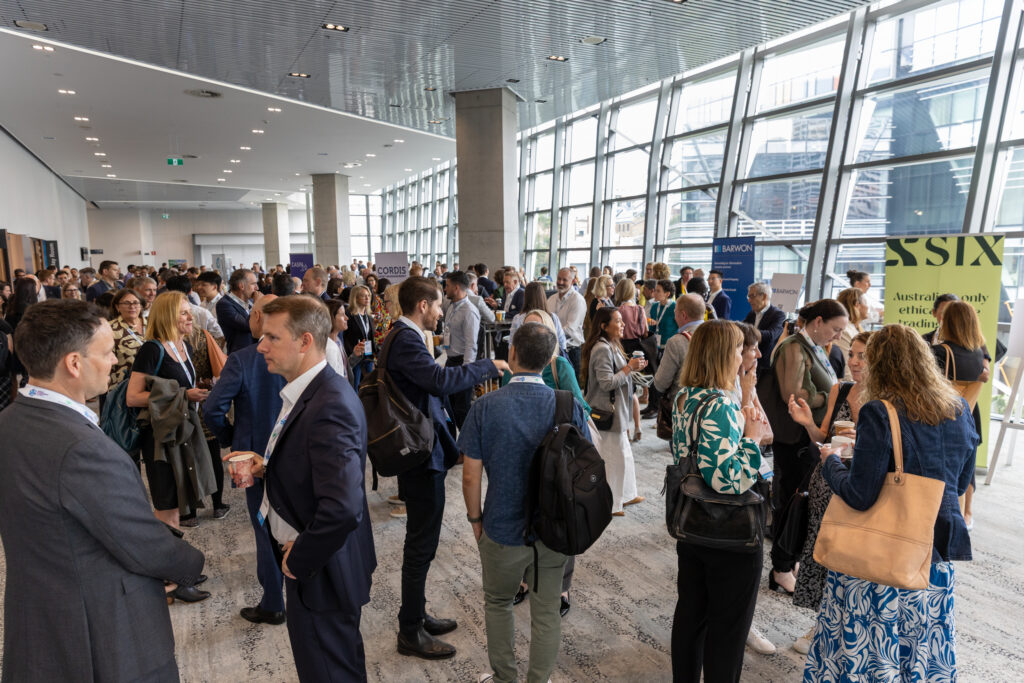
Bringing together family offices, institutions, foundations, and investors, this year’s Summit centred on the theme: ‘Scaling for Positive Impact’.
Proof of its belief in and commitment to promoting opportunities for impacting investing in the arts the Albanese government, through its arts funding body Creative Australia (CA), will pilot a creative industries impact investment fund. CA is also working on an impact investment readiness program for arts companies with Sefa, whose CEO Hanna Ebeling was also on the panel.
In fact, Alberts has been investing in the creative industries long before there was an official name for it.
“We didn’t use to think of ourselves as an impact business, but when we look at what the family has created over the past 140 years of its history, we’re very proud of the positive social impact it’s had in the creative sector, and beyond,” says fifth-generation member Emily Albert, reiterating Ingrid’s comment about investing in music and entertainment pioneers.
While the company’s Foundation strives to improve the lives of young people through music, similarly with the Music Education initiative, Alberts also invests through AIV in two emerging businesses with a strong cultural focus: Surreal and Tixel.
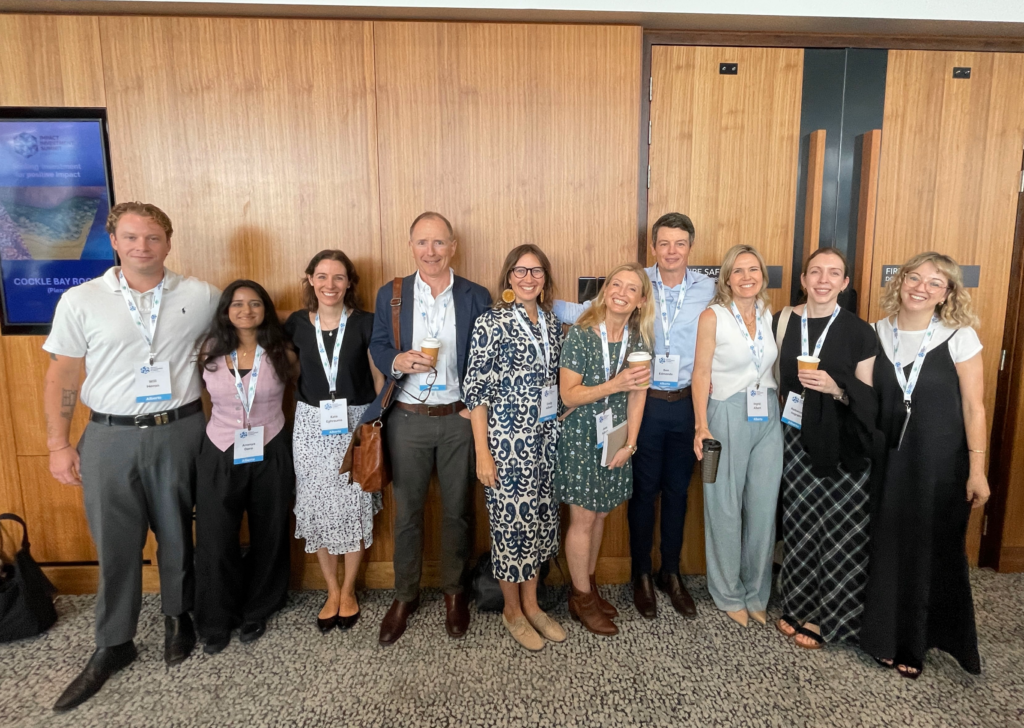
Alberts team members at the Impact Investment Summit, with CEO David Albert (fourth from left).
Emily believes there’s still financial opportunities between philanthropy and impact investing that deserve to be further explored, including blended finance and other ways of unlocking opportunities for different types of capital to go towards cultural organisations. She cites Alberts’ loans to the musical Hamilton during its Australian run and the recent all-Australian female-led film Seriously Red.
“Seriously Red was more high risk than Hamilton, but it was a great opportunity to showcase talent and put a positive story into the world.”
While it is encouraging to think the Government is looking to create its own impact investment fund, Abhilash urges Foundations and businesses to take the plunge.
“You don’t need to wait for all the information before getting started, there’s a lot of value in learning by doing.”
